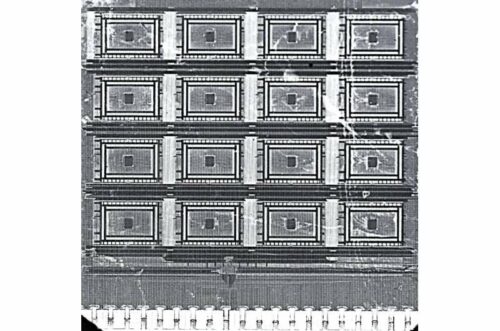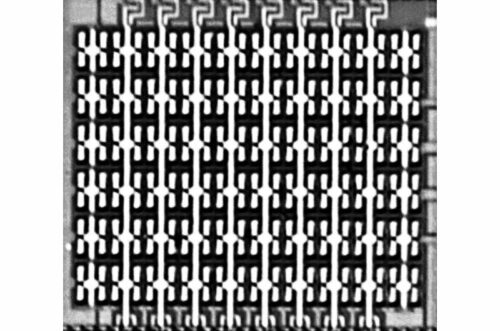Researchers have developed a new memristors based Bayesian machine that excels in small data situations to increase the energy-efficiency of AI models.

Over time, machine learning models have improved significantly. But their implementation still demands vast amounts of energy and computational power. Engineers around the world have been trying to develop alternative hardware solutions that can run artificial intelligence models more efficiently, as this could promote their widespread use and increase their sustainability.
Researchers at Université Paris-Saclay- CNRS, Université Grenoble-Alpes-CEA-LETI, HawAI.tech, Sorbonne Université, and Aix-Marseille Université-CNRS have recently created a so-called Bayesian machine (i.e., an AI approach that performs computations based on Bayes’ theorem), using memristors.
Memristors are essentially electrical components based on nanodevices that limit or regulate the flow of electrical current in a circuit, while also recording how much energy passed in it beforehand. As they perform both computations and information storage, these devices can better reproduce the human brain’s information processing strategies.

The Bayesian machine created by researchers could help to increase the energy-efficiency of AI models, while also potentially inspiring the development of other similar solutions. It could be particularly useful for safety-critical applications, such as medical sensors or circuits to monitor the safety of industrial facilities.
Researchers share that although this machine aims at implementing deep learning,deep learning has some limitations: its results are not explainable, and it does not perform well when little data is available. On the other hand, in their work, researchers chose to implement Bayesian reasoning, an alternative AI approach that does not do well in big data applications where deep learning works so well, but excels in small data situations, and provides fully explainable results.
Researchers say, “we have designed a considerably scaled-up version of the Bayesian machine, which is currently being fabricated, and we have applied the principles behind the machine to other machine learning approaches as well.”
Reference : Kamel-Eddine Harabi et al, A memristor-based Bayesian machine, Nature Electronics (2022). DOI: 10.1038/s41928-022-00886-9. www.nature.com/articles/s41928-022-00886-9






